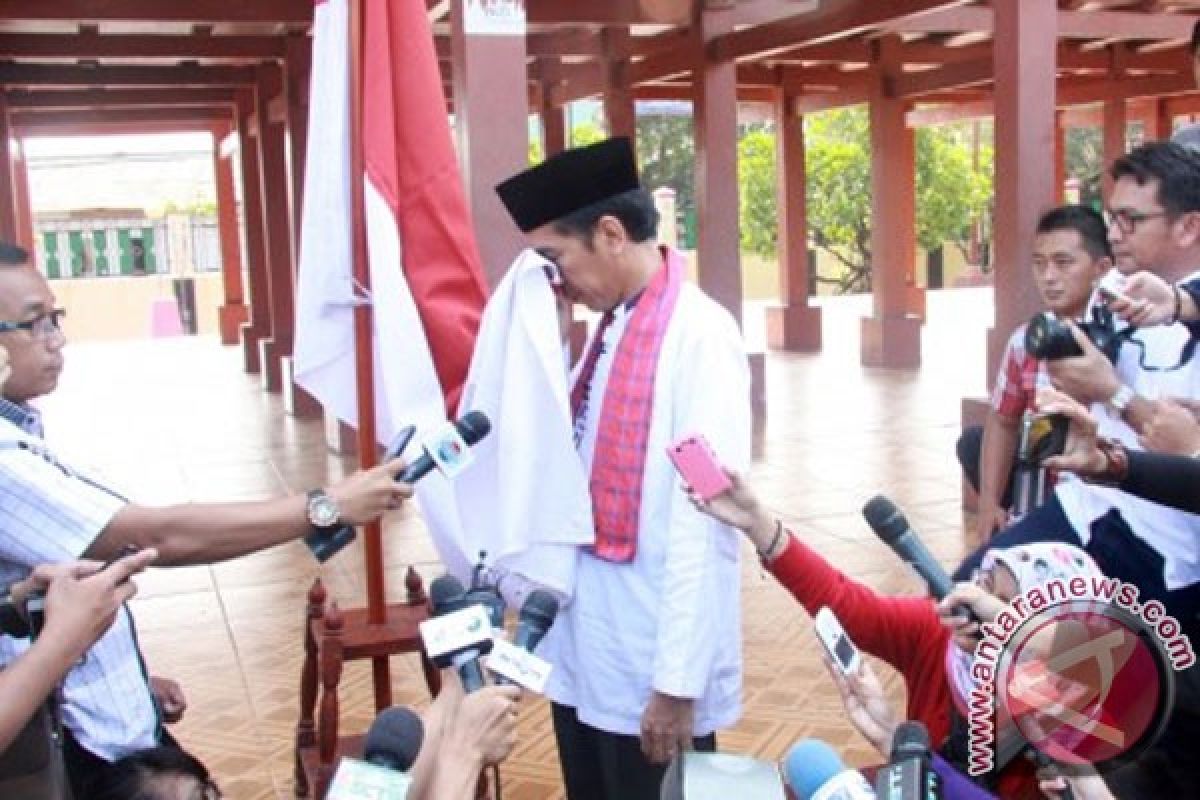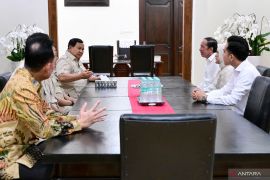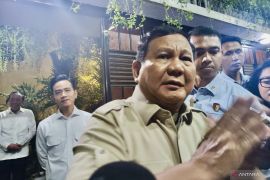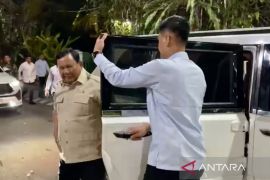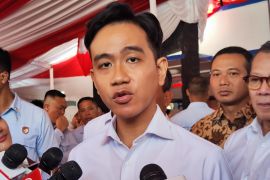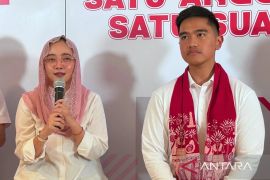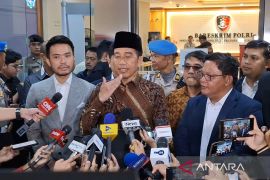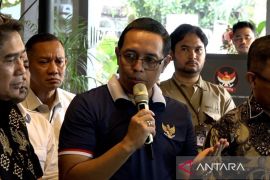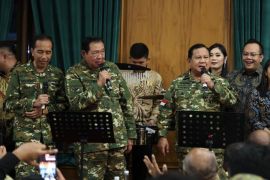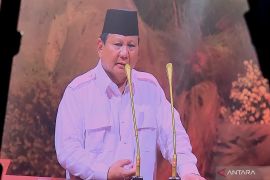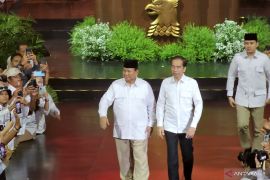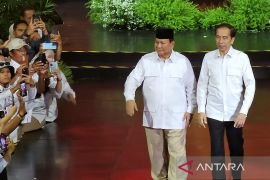"Indonesia great has begun. The nations awakening also started from this place," Effendi Simbolon, one of the PDIP campaigners said during PDIP campaign together with Joko Widodo at the National Awakening Museum in Central Jakarta on Sunday.
Jokowi himself did not talk too much as Effendi did. It was planned that Jokowi would make oration at Cenderawasih Museum in West Jakarta.
Jokowi, who is also the Jakarta governor, came to the National Awakening Museum by wearing a white shirt and black trousers. When entering the museum, he stared at a number of corners of the historic place, which is also known as the STOVIA Museum.
Based on the agenda, Jokowi would, among others, stage campaigns at the Youth Oath Building, the Budi Utomo Building, the traditional market near the Pola and Cenderawasih buildings.
The PDIP officially nominated Jakarta Governor Jokowi as its presidential candidate to compete in the presidential election on July 9.
The legislative election will be held on April 9.
Chief of the PDIPs Central Executive Board Puan Maharani announced Jokowis candidacy for the presidency at the office of the partys central executive board on Friday.
Puan said PDIPs General Chairperson Megawati Soekarnoputri decided to nominate Jokowi for the presidency in accordance with the partys articles of association and the result of the partys congress held in Bali in 2010.
Political analyst Ari Junaedi of the University of Indonesia believed that the PDIP will win 27.02 percent or about 152 seats in the parliament with Jokowis nomination.
"I am convinced the PDIP will reap 27.02 percent of the votes and secure 152 seats in the House of Representatives (DPR) in the April 9 legislative elections. This is because Jokowi will be elected not only by the PDIP supporters, but also by other parties backers. So, the gains of the PDIP will increase significantly," Ari Junaedi said.
A total of 15 political parties in Indonesia have been verified by the General Elections Commission (KPU) so they have the right to participate in the elections.
Three of them are local parties for the Aceh electorate while 12 others are the national parties that will participate in the parliamentary elections in April.
They consist of the National Democratic Party (Nasdem), the National Awakening Party (PKB), the Prosperous Justice Party (PKS), the Indonesian Democratic Party Struggle (PDIP), the Golkar Party (Golkar), and the Great Indonesia Movement (Gerindra).
Then the others are the Democratic Party (Demokrat), the National Mandate Party (PAN), the United Development Party (PPP), the Peoples Conscience Party (Hanura), the Crescent Star Party (PBB) and the Indonesian Justice and Unity Party (PKPI).
Editor: Aditia Maruli Radja
Copyright © ANTARA 2014
